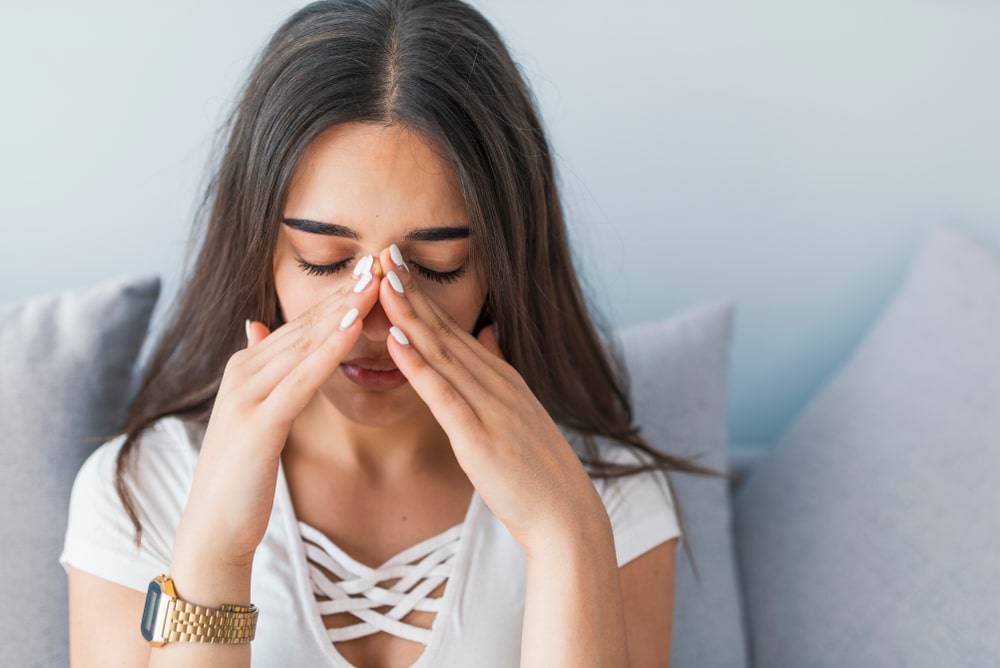Everything You Need to Know About Allergic Rhinitis

Although they may seem harmless, allergies are a major problem for millions of people. Seasonal allergies disturb your daily life in many ways. From itchy water eyes to chronic sneezing or coughing, the symptoms can make life uncomfortable.
Allergic rhinitis, also known as hay fever, occurs when someone is exposed to a specific allergen in the air. This is one of the most common types of allergies. Our team at Associates of Otolaryngology treats allergic rhinitis.
What is Allergic Rhinitis?
As stated before, allergic rhinitis is when someone has an allergic reaction to a specific airborne allergen. Allergic rhinitis can be triggered by several things including pollen, dirt, pet fur, dander, mold and dust mites, amongst others.
According to the American Academy of Allergy, Asthma, & Immunology (AAAAI), about 10 to 30 percent of the world experience hay fever.
What Are The Symptoms of Allergic Rhinitis?
The symptoms associated with hay fever are similar to those of a regular allergic reaction.
Below are some of the most common symptoms:
– Runny nose
– Itchy, stuffy nose
– Sore throat
– Itchy, watery eyes
– Coughing
– Fatigue
– Headaches
– Hives
In many cases of allergic rhinitis, people usually exhibit more than one of these symptoms. Symptoms like the headache, for example, can happen if you’ve been exposed to an allergen for too long. Despite having the word in its name, a fever is not associated with hay fever. Often allergy sufferers will have puffy eyes as well when they are experiencing a reaction.
Types of Allergic Rhinitis
There are two types of allergic rhinitis: seasonal and perennial. Seasonal rhinitis is when the symptoms occur during the summer, spring, or fall. Perennial rhinitis is when someone experiences symptoms year-round.
However, despite sharing the same symptoms, the causes slightly vary. For seasonal rhinitis, symptoms can occur due to exposure to airborne particles, such as pollen and mold spores.
People with perennial rhinitis can experience it from anything ranging from dander to cockroaches, usually indoor allergens that someone is exposed to year-round. There are also rare cases where a food allergy can trigger perennial rhinitis.
How to Treat Allergic Rhinitis
Luckily, there are various treatment options for allergic rhinitis depending on the cause and the most bothersome symptoms. There are various methods you can use such as medications. Some medications you can use include antihistamines and nasal steroid sprays.
Furthermore, optimizing your environment can also play a pivotal role when it comes to treating allergic rhinitis. Wipe window sills, vacuum the floor to remove dirt, dander, dust, and hair, and wipe dust off your air ducts.
If your symptoms persist despite treatment with conservative medications and avoidance, formal allergy testing and immunotherapy (allergy shots or allergy drops) can significantly improve the symptoms as well. We offer testing and treatment at our offices.
Allergic rhinitis can be difficult to live with at times, but thankfully, it’s not a cause for alarm. People with asthma may be more at risk for a dangerous reaction than others. Other than that, hay fever symptoms are usually mild and can be treated successfully.
Contact Our Team
If you’re experiencing allergy rhinitis, call our office to schedule an appointment with one of our team members. Associates of Otolaryngology treat allergies along with anything pertaining to ENT. Call us today.
Associates of Otolaryngology, or, AOO | ENT Specialists of the Rockies has been serving multiple generations of families across the Denver Metro area since 1969. Our group of board-certified surgeons has been providing award-winning treatment and exceeding patients’ expectations with our specialized ENT services for over fifty-five years.
Thanks to our exceptional providers, we are an all-encompassing, comprehensive ENT practice. Our expert team of specialists includes general ENT surgeons, head and neck surgeons, sleep, sinus, and allergy specialists, and facial cosmetic and reconstructive surgeons. In addition, our team of providers is supported by doctoral-level audiologists, physician assistants, and nurse practitioners.





